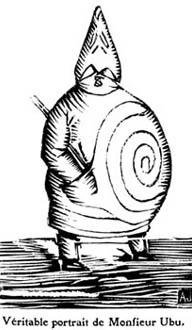User Login |
Enter Morris Imposternak, Pursued by Ironies by Eugene Ostashevsky reviewed by Will OwenI fist met Eugene Ostashevsky in St. Petersburg in the summer of 2006, whie he was in the process of composing this poem. He gave an in-progress reading of the poem at the American Corner library with Ann Lauterbach on a particularly hot June day. My teenage self was impressed enough to record that "I like[d] where it came out of," by which I hope I meant Eugene's mouth. It is worth noting that I took great note of Eugene, who was reading a poem-in-progress, and forgot Ann Lauterbach, who was reading from a book that had been released years before. Eugene is also a bit of a ham, loud, a performer of poetry. It's one of the many things about his poetic practice that bridge contemporary Russian and English poetry traditions. He sees the imperative to perform, but where a russian would have drama, Eugene has humor; sentiment becomes irony, etc. Since our chance encounter in St. Petersburg, I've had the opportunity to see Eugene perform a few more pieces in a few more places. I've discovered that he's a 'master teacher of humanity' (non-tenure track) at NYU, an editor and translator of St. Petersburg's last/lost avant-garde group OBERIU. I've heard him misapply outdated philosophical concepts, work with the unrhymed and occasionally rhymed couplet, use odd words extremely literally, and the false elevation of bad song, all with fantastic results. In 'Enter Morris Imposternak, Pursued by Ironies,' a poem in 12 parts, we come across the title character, which the poem tells us early on is not an idea, in epistemological crisis and heartbreak: Do not love For when you pop open a human being All you find is forty feet of intestine And how lovable is that? Morris has a problem saying and speaking about his love because he, caught up in a scientific idea of truth, has discovered that it is not possible to say something that is true, that his unrequited love may be self-deception failing to deceive another, which may or may not be a body-machine. He doesn't know what to do! He does things. Like play a violin, which is non-existant as Morris is non-loved. Morris Imposternak will not write his love Because doing so would plunge him into the epistemological quandary There is quite a bit of writing about deciding not to write in this book. At some point during the poem poetry ends. But first Morris ponders a tree, allows an aardvark (shoved to the front of every list) under the tree to let out his self pity soliloquy, wherein we learn that animals have no souls. Morris blows in the air where he watches the war between the Knight of the Swan and the Knight of Mirrors, Incoherent and sweaty in their armor probably not saying anything because one would like to say something true, and what's true nowadays, anyway? As I alluded to, poetry ends in the penultimate section of the poem, which is too bad, because 'Enter Morris Imposternak, Pursued by Ironies' tells us that it might've turned out to be an okay poem. This is discovered by a mysteriously narrator that may be Eugene Ostashevsky, may be Morris Imposternak, but probably isn't the aardvark. It is also established that it takes a specialist to say a true statement. Section 12, which occurs just after poetry ends profiles a series of suddenly appearing philosophers taking up other professions. After all that's come before it feels like these philosophers need to be pictured as cartoon renderings of Descartes' friends, or perhaps bearded fellows in Grecian dress engaged in a dialogue. Even Kant would find them quaint! But so out of place, which is what Ostashevsky does. Perhaps has them screw in lightbulbs, or walk into bars. He sings the joke.
categories [ Text Reviews ]
login or register to post comments | printer friendly version
|
